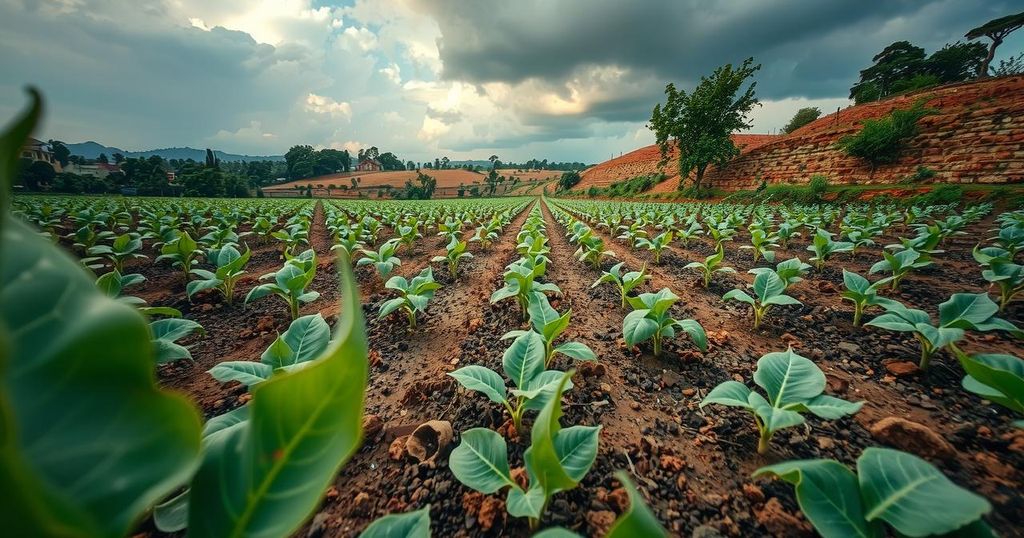Zimbabwean Farmers Embrace Maggot Farming Amid Drought Challenges
In Zimbabwe, farmers are increasingly adopting maggot farming to combat drought-related food shortages. Initially met with skepticism, this practice provides protein-rich feed for chickens, significantly reducing costs and enhancing food security. The black soldier fly’s maggot is eco-friendly, converting organic waste, and has gained acceptance among farmers, transforming local agricultural practices.
In southeastern Zimbabwe, farmers like Mari Choumumba are turning to maggot farming as a means of sustaining their livelihoods amid ongoing drought conditions that have devastated traditional crops like corn. Initially met with skepticism, the concept gained traction following government and NGO initiatives promoting the breeding of maggots as a sustainable food source for chickens and a resource for manure. Choumumba now feeds her chickens with protein-rich maggot feed, significantly reducing her costs and contributing to food security in her community.
The maggots, derived from the black soldier fly, have become a viable protein alternative, particularly as the cost of conventional chicken feed fluctuates dramatically. Underpinned by local agricultural initiatives, farmers report up to 40% savings in production costs, thereby enhancing the economic stability of rural households. As awareness of the health benefits and environmental impact grows, the farming of maggots is transforming from a novel idea into a practical solution for climate-affected regions.
Moreover, this innovative approach addresses food waste management by recycling organic materials, mitigating greenhouse gas emissions that arise from waste decomposition. The educational endeavors spearheaded by agricultural experts have encouraged a substantial increase in participation among local farmers, reinforcing the notion that necessity breeds innovation. The shift in perspective regarding maggot farming illustrates a burgeoning acceptance of unconventional agricultural methods as a means to counter food scarcity and enhance income.
Maggot farming is emerging as a transformative agricultural practice in Zimbabwe, particularly in the face of recurrent droughts which have exacerbated food insecurity. The transition from traditional farming methods to maggot breeding highlights both a cultural shift and a practical response to serious climatic challenges. Given the economic constraints faced by rural farmers, the utilization of maggots as a sustainable source of protein significantly alleviates the financial burdens associated with livestock feed, thereby improving local food production systems. Additionally, the cultivation of maggots enhances waste recycling efforts and contributes to environmental conservation, as nearly 90% of the country’s organic waste can be repurposed—underlining the potential for integrated pest management strategies in agriculture.
In conclusion, the adaptation of maggot farming in Zimbabwe represents a vital response to the agricultural challenges posed by climate change and resource scarcity. Farmers, initially hesitant, have recognized the dual benefits of cost-effective livestock feed and sustainable waste management. This shift not only fosters food security but also strengthens local economies and environmentally sustainable practices, paving the way for innovative agricultural solutions in the face of adversity.
Original Source: apnews.com




Post Comment